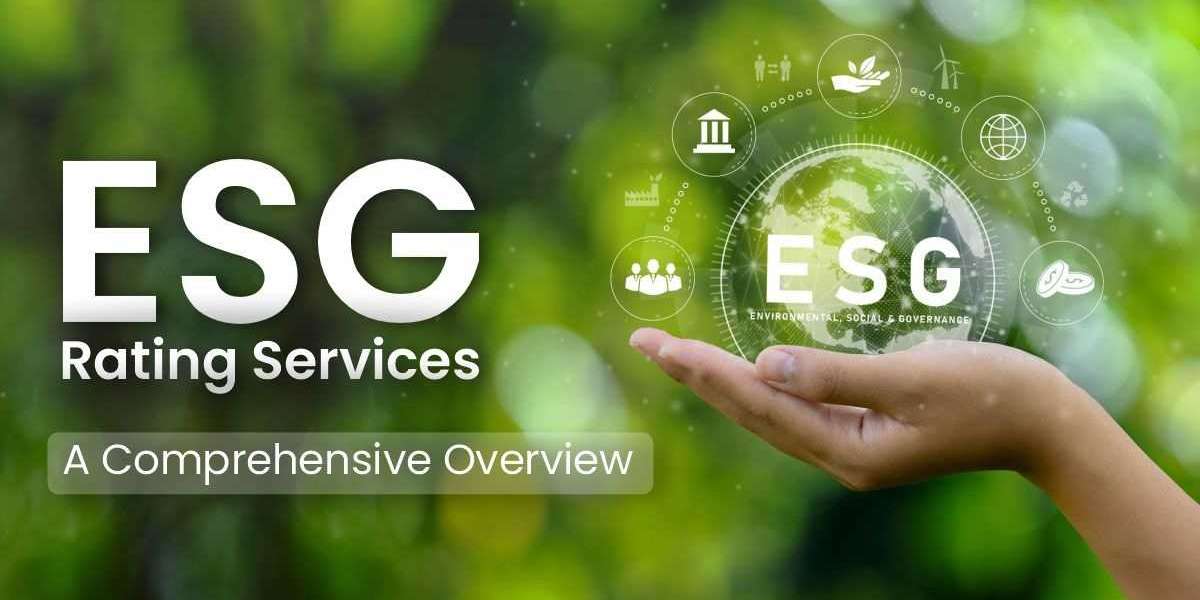ESG Ratings: An Overview
In recent years, Environmental, Social, and Governance (ESG) factors have transitioned from a niche consideration to a central focus in global business and investment strategies. ESG ratings have become vital tools for investors, regulators, and stakeholders interested in evaluating a company's commitment to sustainability, ethical behavior, and responsible corporate practices. These ratings assess a company's performance in three key areas: environmental impact, social responsibility, and governance practices.
What Are ESG Ratings?
ESG ratings provide an in-depth evaluation of a company's performance across three core areas:
Environmental: This area measures a company's management of its ecological footprint. Key factors include carbon emissions, energy consumption, water usage, waste management, and biodiversity protection. Companies that actively reduce their environmental impact and prioritize sustainability score higher in this category.
Social: The social pillar examines how a company engages with its employees, customers, and the broader community. Essential factors include labor relations, diversity and inclusion, product safety, customer privacy, and community engagement. Companies that demonstrate fairness, inclusivity, and ethical treatment of stakeholders tend to perform better socially.
Governance: Governance evaluates the effectiveness of a company's management and oversight structures. This includes practices related to corporate governance, executive compensation, board diversity, transparency, and ethical business decisions—companies with strong governance frameworks and ethical conduct score higher in this area.
The Importance of ESG Ratings
Investment Decisions: ESG ratings offer investors valuable insights into a company's long-term sustainability and growth potential. Companies with strong ESG performance are often better equipped to manage risks like regulatory changes, environmental challenges, and reputational issues. ESG ratings help investors align their portfolios with companies that reflect their values while minimizing exposure to poor ESG practices.
Risk Mitigation: ESG factors significantly impact a company's financial and operational stability. A poor performance in any ESG area can lead to reputational damage, legal liabilities, and regulatory penalties, which may harm a company's bottom line. ESG ratings assist businesses in identifying and addressing these risks early, allowing them to take preventive action before they escalate into costly problems.
Regulatory Compliance: As governments worldwide implement stricter ESG-related regulations, companies must ensure compliance with evolving standards. ESG ratings help businesses meet legal requirements for environmental protection, social responsibility, and governance practices. High ESG ratings can enhance a company's reputation with regulators, investors, and customers, ensuring long-term credibility.
Corporate Reputation: A strong ESG rating signals a company's commitment to sustainability, ethical practices, and social responsibility. Companies with favorable ESG profiles attract investors, customers, and business partners who prioritize responsible corporate behavior. A favorable ESG rating strengthens a company's reputation and offers a competitive advantage in the marketplace.
Encouraging Positive Change: ESG ratings inspire companies to adopt sustainable practices, improve social responsibility initiatives, and enhance governance structures. By identifying areas for improvement, ESG ratings motivate businesses to implement changes that contribute to environmental protection, societal well-being, and better business practices.
How ESG Rating Services Work
Data Collection: ESG rating agencies gather data from various sources, including company disclosures (e.g., sustainability reports), regulatory filings, media reports, and direct company interactions. This data helps create a comprehensive view of how well a company manages its ESG responsibilities.
Assessment Framework: ESG rating agencies use proprietary methodologies to evaluate companies. These frameworks typically focus on materiality (identifying the most relevant ESG issues for specific industries), weightage (assigning importance to different ESG factors), and benchmarking (comparing a company's performance with industry peers).
Scoring and Rating: Companies receive scores that result in an overall rating based on their performance across the ESG pillars. These ratings may be presented in various formats, such as numeric scores (e.g., 0-100), letter grades (e.g., A to D), or percentile rankings. These ratings allow stakeholders to compare a company's ESG performance to others in the same sector.
How Companies Can Improve Their ESG Ratings
Proactive Disclosure: Transparency is essential for improving ESG ratings. Companies should regularly disclose their ESG efforts, goals, and challenges through sustainability reports and public statements. Consistent and honest reporting builds credibility and trust with investors and stakeholders.
Materiality Assessment: Companies should focus on the ESG factors that are most relevant to their industry and stakeholders. By aligning their sustainability initiatives with the most significant issues, companies ensure their actions have a meaningful and measurable impact.
Stakeholder Engagement: Effective communication with employees, customers, investors, and regulators ensures ESG strategies meet stakeholder expectations. Ongoing engagement fosters a shared sustainability vision and strengthens support for ESG initiatives.
Independent Audits: Third-party audits objectively evaluate a company's ESG performance. They ensure the accuracy of ESG disclosures and promote reporting transparency and accountability.
Continuous Improvement: ESG is an ongoing process, not a one-time initiative. Companies should regularly review and update their ESG strategies to address emerging challenges and meet evolving stakeholder expectations. By committing to continuous improvement, companies can stay ahead of industry trends and maintain strong ESG performance.
Conclusion
ESG ratings have become critical tools for businesses, investors, and regulators to assess corporate sustainability and ethical practices. These ratings significantly influence investment decisions, regulatory compliance, and long-term strategic planning. For companies, achieving high ESG ratings improves scores and fosters a culture of responsibility, sustainability, and ethical governance. For investors and stakeholders, ESG ratings offer a dependable framework for evaluating a company's long-term value and societal and environmental impact.








